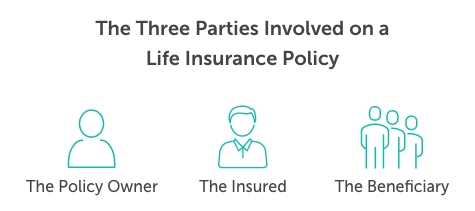
Introduction
Demystifying the ambivalent nature of insurance companies can be quite a task. On one hand, they are profit-driven entities, while on the other, they bear the mandate to protect policyholders from unforeseen financial losses.
Understanding the role of insurance companies
Insurance companies play a pivotal role in the financial system. They act as a safeguard against potential risks and uncertainties, providing financial security to individuals and businesses alike. Through the process of pooling risks, insurers enable the distribution and transfer of risks from the insured to the insurer.
The balance between profit and protection
The dual role of insurance companies is a delicate balance. Striking the chord between making profits and offering protection requires a keen understanding of risk assessment and management. In essence, they have to assess the potential risks accurately, determine appropriate premium rates that will cover future claims, all while ensuring they make profits to maintain the company’s health. This can be a tightrope walk, but it underlines the dynamic nature of how insurance companies operate.
In summary, insurance companies are key players in supporting economic stability. They straddle the critical lines between running a profitable business and providing effective protection to policyholders. Making sense of this ensues an appreciation of their intricate role in the financial sector.
The Profit Role of Insurance Companies
Insurance companies are businesses, and like all businesses, they are on a mission to make a profit. Despite providing a service aimed at protection, the underlying goal is profitability.
How insurance companies generate revenue
One doesn’t need a business degree to understand that insurance companies primarily generate their revenues through premiums. These are regular fees that policyholders must pay to keep their coverage active. Interestingly, this is not the only revenue source.
Factors influencing profitability in the insurance industry
Several factors can affect profitability in the insurance industry. These include the frequency of claims, economic conditions, regulatory changes, catastrophe events, and investment performance.
Strategies for maximizing profits
Maximizing profits requires effective strategies. These include providing excellent customer service, improving operational efficiency, and utilizing data analytics to make informed decisions. Redefining marketing strategies could also tip the scale in favor of profitability. Insurance companies are increasingly using technology to optimize these aspects and gain a competitive edge.

The Protection Role of Insurance Companies
Insurance companies play a fundamental role in managing risk and providing financial security to policyholders. They anticipate potential disasters and protect policyholders from bearing the brunt of these events.
Providing financial security to policyholders
Insurance companies provide the means for individuals, businesses, and other organizations to hedge against potential losses. They collect premiums from policyholders which, in turn, serve as a financial safety net when emergencies strike.
Types of insurance coverage and their importance
Different types of insurance coverage are available – life, health, property, automobile, and more. They provide needed protection against different forms of risk. These coverages are essential because they can help prevent financial ruin due to unforeseen events.
The role of insurance in risk management
Insurance companies play a vital role in risk management, using actuarial methods to anticipate risk and settle claims. They offer an effective way to distribute risk among a large group, reducing the potential impact of a loss on any one individual or entity.
Complete protection against risk is critical for both individuals and businesses, providing a safety net when unforeseen events occur. Thus, the dual function of insurance companies – profit and protection – is essential for the functioning of all societies.
Balancing Profit and Protection
In the business environment, insurance companies are continuously striving to balance their profit goals with their role in protection. This dual responsibility is inherent in the insurance business model and presents an ongoing challenge.
Challenges faced by insurance companies in balancing profit and protection
Insurance firms excel when they can manage risk for their clients – and for their bottom line. Striking this balance is tricky, with too much emphasis on profit undermining the protection of policyholders, and an overfocus on protection compromising profitability.
Ethical considerations in the insurance industry
Furthermore, ethical issues influence how insurance companies manage this delicate balance. Insurers have a moral responsibility to safeguard customers while ensuring the long-term survival of their business. Operating ethically doesn’t always align with profit-making, which can create tension within the industry.
The table below summarises the dual role:
| Role | Challenge |
|---|---|
| Balancing Profit | Too much emphasis on profit may undermine the protection of policyholders. |
| Offering Protection | Overfocus on protection could affect profitability. |
| Ethical considerations | Insurers have a moral responsibility to safeguard customers while ensuring their business’s longevity. |
GIPHY App Key not set. Please check settings